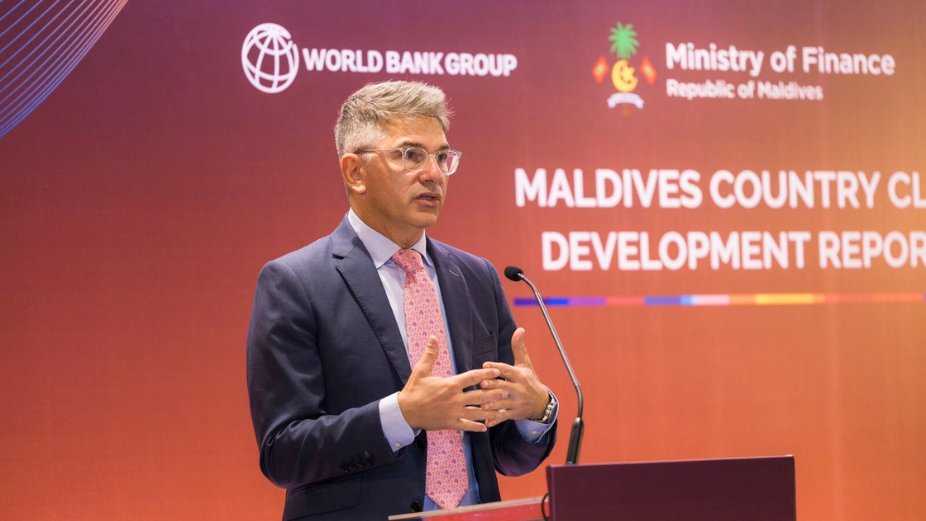
The Maldives’ economy, heavily reliant on tourism and fisheries, is at significant risk due to climate change, according to a new report released yesterday by the World Bank Group. The Maldives Country Climate and Development Report (CCDR) highlighted issues such as coastal flooding can damage as much as 3.3% of the nation’s total assets by 2050, with economic damages ranging between US$0.7–1.1 billion. However, strategic investments in adaptation could reduce these losses significantly, the report said, cutting the projected GDP impact from 11% to less than 6%.
The Maldives CCDR proposes key strategies for addressing climate challenges, including fiscal reforms, mobilising climate finance, and improving the resilience of both ecosystems and vital sectors like fisheries and tourism. Among the most pressing needs is a reduction in blanket subsidies, which would create fiscal space for climate-related investments. Additionally, the CCDR recommends the development of a national carbon market strategy to attract sustainable private financing.
Fisheries and Tourism at Risk
Tourism and fisheries, which together make up nearly half of the country’s GDP and employment, are facing unprecedented challenges. The degradation of marine ecosystems, primarily coral reefs, will worsen substantially by mid-century, especially under high emission scenarios, the CCDR warns. Coral reefs, vital for coastal protection and the tourism sector, are expected to disappear almost entirely if global temperatures rise above 2°C.
The Maldives’ resorts are already feeling the effects of climate change, with over 90% reporting beach erosion and 60% facing infrastructure damage. These challenges are compounded by changes in fish migration patterns, which could reduce fish catch by up to 100% by the end of the century under extreme scenarios.
As highlighted by Imad Fakhoury, IFC’s Regional Director for South Asia, “Unlocking private climate finance is essential for addressing the climate crisis and building resilient economies.” The report calls for diversifying fisheries, investing in mariculture, and ensuring that tourism infrastructure is designed to withstand climate risks.
Adaptation: A Costly but Necessary Investment
Adapting to sea-level rise, flooding, and other climate risks will require significant investments, estimated between $2 billion and $4 billion. According to the report, this means access to concessional financing and public-private partnerships vital for funding the required projects.
Hiroshi Matano, MIGA Executive Vice President, noted the need for collaboration with the international community to support the Maldives’ climate agenda. He emphasised the importance of de-risking private investments to unlock new sources of finance, which will be crucial for achieving the Maldives’ climate and development goals.
Looking Forward
The Maldives CCDR outlines a comprehensive roadmap for balancing climate action with development goals. With key sectors like tourism and fisheries under threat, timely adaptation measures and innovative financing solutions are critical to ensuring the country’s long-term sustainability.
However, high public spending on infrastructure—leading to a public debt of 123% of GDP in 2023—limits the government’s ability to fund critical climate adaptation projects. According to David Sislen, World Bank Country Director for the Maldives, Nepal, and Sri Lanka, “The Maldives is at a critical juncture where the impacts of climate change and ongoing economic challenges converge. The CCDR outlines a pathway for safeguarding natural assets while building a more resilient and sustainable economy.”









